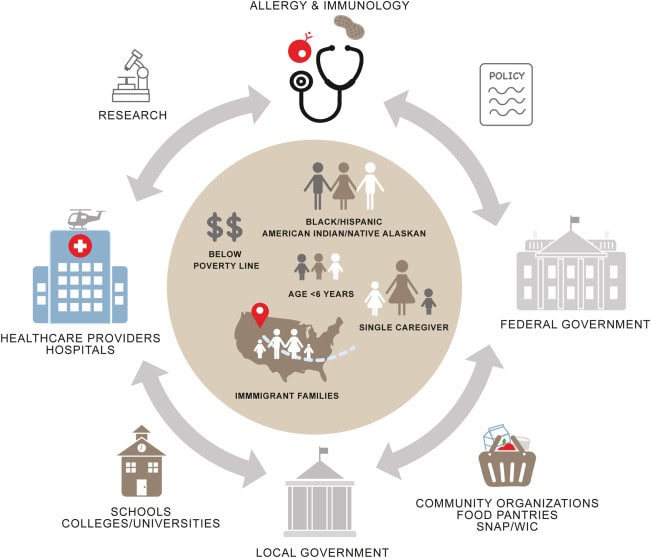Over 10% of Americans are food insecure – uncertain of their access to adequate food. Food insecurity is a key social determinate of health, known to negatively affect nutrition and health outcomes. To allergy and immunology patients who may have to adhere to specific diets, the impact of food insecurity can complicate medical care. Prominent allergy and nutrition investigators, including ACNC and ACRI faculty, recently published a call to action for government, community organizations, schools, and healthcare providers outlining ways food insecurity impacts people with life-threatening food allergies, digestive disorders, and asthma, along with the long term-consequences of living with nutritional deficiencies. Outlined were strategies that assist food insecure communities gain access to nutritious food as part of their routine lifestyle, to promote health equity and optimize health outcomes. Efforts to address food insecurity through hospital systems and NIH Funding, such as identifying at risk families for preventative programs, have significantly contributed to short-term needs, however, strategies allowing long-term access to safe and nutritious foods in their communities are necessary. Collectively, allergy and immunology specialists along with all treating clinicians must leverage their unique roles to advocate for and help develop strategies that promote food security and quality nutrition. Creating a food and nutritionally secure environment for all – including allergy and immunology patients and their families -via partnerships with health care providers, hospitals and health care systems, policy makers, researchers, funding agencies, and advocacy groups to consider the unique needs of vulnerable populations at risk for food insecurity is essential.
Full publication available Here

Infographic from original publication
